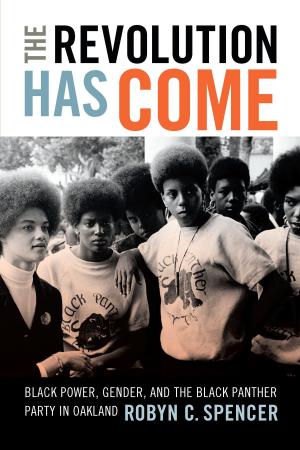Seeking Rights from the Left
Gender, Sexuality, and the Latin American Pink Tide
Nonfiction, History, Americas, South America, Social & Cultural Studies, Social Science, Gender Studies, Gay Studies| Author: | ISBN: | 9781478002604 | |
| Publisher: | Duke University Press | Publication: | December 31, 2018 |
| Imprint: | Duke University Press Books | Language: | English |
| Author: | |
| ISBN: | 9781478002604 |
| Publisher: | Duke University Press |
| Publication: | December 31, 2018 |
| Imprint: | Duke University Press Books |
| Language: | English |
Seeking Rights from the Left offers a unique comparative assessment of left-leaning Latin American governments by examining their engagement with feminist, women's, and LGBT movements and issues. Focusing on the “Pink Tide” in eight national cases—Argentina, Bolivia, Brazil, Chile, Ecuador, Nicaragua, Uruguay, and Venezuela—the contributors evaluate how the Left addressed gender- and sexuality-based rights through the state. Most of these governments improved the basic conditions of poor women and their families. Many significantly advanced women's representation in national legislatures. Some legalized same-sex relationships and enabled their citizens to claim their own gender identity. They also opened opportunities for feminist and LGBT movements to press forward their demands. But at the same time, these governments have largely relied on heteropatriarchal relations of power, ignoring or rejecting the more challenging elements of a social agenda and engaging in strategic trade-offs among gender and sexual rights. Moreover, the comparative examination of such rights arenas reveals that the Left's more general political and economic projects have been profoundly, if at times unintentionally, informed by traditional understandings of gender and sexuality.
Contributors: Sonia E. Alvarez, María Constanza Diaz, Rachel Elfenbein, Elisabeth Jay Friedman, Niki Johnson, Victoria Keller, Edurne Larracoechea Bohigas, Amy Lind, Marlise Matos, Shawnna Mullenax, Ana Laura Rodríguez Gustá, Diego Sempol, Constanza Tabbush, Gwynn Thomas, Catalina Trebisacce, Annie Wilkinson
Seeking Rights from the Left offers a unique comparative assessment of left-leaning Latin American governments by examining their engagement with feminist, women's, and LGBT movements and issues. Focusing on the “Pink Tide” in eight national cases—Argentina, Bolivia, Brazil, Chile, Ecuador, Nicaragua, Uruguay, and Venezuela—the contributors evaluate how the Left addressed gender- and sexuality-based rights through the state. Most of these governments improved the basic conditions of poor women and their families. Many significantly advanced women's representation in national legislatures. Some legalized same-sex relationships and enabled their citizens to claim their own gender identity. They also opened opportunities for feminist and LGBT movements to press forward their demands. But at the same time, these governments have largely relied on heteropatriarchal relations of power, ignoring or rejecting the more challenging elements of a social agenda and engaging in strategic trade-offs among gender and sexual rights. Moreover, the comparative examination of such rights arenas reveals that the Left's more general political and economic projects have been profoundly, if at times unintentionally, informed by traditional understandings of gender and sexuality.
Contributors: Sonia E. Alvarez, María Constanza Diaz, Rachel Elfenbein, Elisabeth Jay Friedman, Niki Johnson, Victoria Keller, Edurne Larracoechea Bohigas, Amy Lind, Marlise Matos, Shawnna Mullenax, Ana Laura Rodríguez Gustá, Diego Sempol, Constanza Tabbush, Gwynn Thomas, Catalina Trebisacce, Annie Wilkinson















